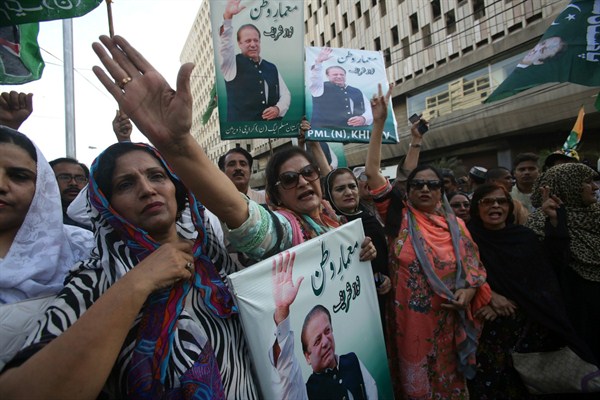On Feb. 21, Pakistan’s Supreme Court disqualified former Prime Minister Nawaz Sharif from leading the ruling Pakistan Muslim League-Nawaz, or PMLN, party. Sharif’s brother Shahbaz, another senior PMLN leader, is expected to replace him as party president.
The move marked Sharif’s second disqualification in seven months. Last July, the same court disqualified him from office, obliging him to resign as prime minister.
These developments represent just the latest blows for the PMLN, which has led the government after winning a landslide election in 2013—but has seemingly been on the defensive ever since then.

